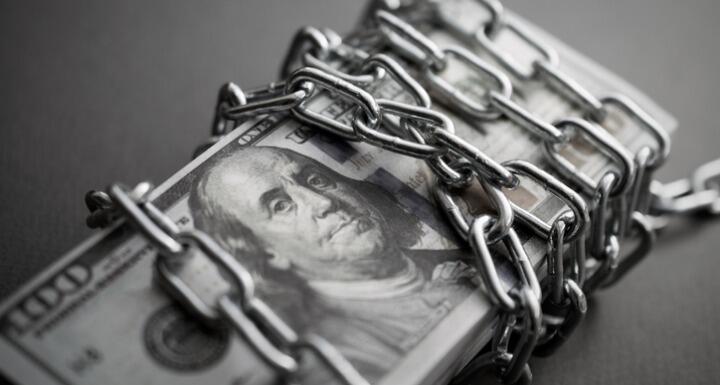Nearly six months after the creation of the Paycheck Protection Program ("PPP"), many borrowers are ready to submit their PPP loan forgiveness applications or have already submitted them.
Although lenders and borrowers still face uncertainty regarding PPP rules, the general process of obtaining PPP loan forgiveness is known. With each passing week, we can expect lenders to process more PPP loan forgiveness applications and more Small Business Administration ("SBA") decisions will be rendered.
This article addresses the available options for a borrower if the SBA makes an adverse loan review decision. But first, it is important to remind ourselves of the general framework for how the PPP loan forgiveness process works and when an SBA loan review may occur. A borrower that received a PPP loan can apply for loan forgiveness through the lender that issued the PPP loan. To apply for forgiveness, a borrower must complete and submit a loan forgiveness application (SBA Form 3508, SBA Form 3508EZ, or a lender equivalent) to the lender no later than ten months after the last day of the borrower's covered period. Loan forgiveness is primarily based on the borrower's use of the PPP loan for eligible payroll and non-payroll costs during the borrower's eight-week or 24-week covered period, subject to certain reductions for decreasing employee salaries or wages or decreasing the borrower's average number of full-time equivalent employees as compared to a prior period. Upon receiving a loan forgiveness application, the lender has 60 days to issue a decision to the SBA. During those 60 days, the lender must (i) confirm receipt of the borrower's certifications, (ii) confirm receipt of documentation verifying payroll and non-payroll costs, (iii) confirm the borrower's calculations, and (iv) confirm that the borrower correctly applied the rule that at least 60% of the loan forgiveness amount requested is attributable to eligible payroll costs. It is the borrower's responsibility to provide accurate calculations, but lenders are expected to perform a good-faith review. If the lender identifies calculation errors or a material lack of substantiating documentation, the lender should work with the borrower to correct any issues. Once the lender makes a loan forgiveness decision, it issues the decision to the SBA.
After several months of documenting the use of a PPP loan and following continuously-updated SBA guidance, completing a loan forgiveness application should feel like an accomplishment for any borrower. Yet, after the lender issues its loan forgiveness decision to the SBA, the SBA has 90 days to remit the appropriate forgiveness amount to the lender, subject to any SBA review of the borrower's PPP loan. We wrote an earlier article about SBA's mandatory loan review of all PPP loans in excess of $2 million (including affiliate loans). However, the SBA may undertake a review at any time of a PPP loan of any size. While we expect additional guidance in this area, our current interpretation is that any PPP loan borrower may be subject to an SBA review of the borrower's eligibility, use of the PPP loan, and loan forgiveness at any time, in SBA's sole discretion. In fact, the SBA requires that a borrower maintain its PPP loan documentation for up to six years after the date the loan is forgiven or repaid in full. Every borrower—especially borrowers that received PPP loans in excess of $2 million—should have a general understanding of what an SBA loan review is and how to appeal an adverse decision.
The Right To Appeal an SBA Loan Review
To understand the opportunity to appeal an SBA loan review, a borrower should know the potential parties involved in a loan forgiveness decision. Those parties are (i) the lender; (ii) the SBA; and (iii) the SBA Office of Hearings and Appeals ("OHA"). The lender receives the borrower's loan forgiveness application, decides the amount of loan forgiveness, and issues its decision to the SBA. The SBA remits the loan forgiveness amount requested by the lender and/or reviews the loan. The SBA can review a loan during the 90 days it has to remit the forgiveness amount, upon request by a borrower that has been denied loan forgiveness in full by the lender, or at any time the SBA decides to undertake a review. OHA will accept a timely filed appeal by a borrower of an SBA loan review (defined below).
An SBA loan review is an official written decision issued by the SBA that finds a borrower (1) was ineligible for a PPP loan; (2) was ineligible for the PPP loan amount received or used the PPP loan for unauthorized uses; (3) is ineligible for loan forgiveness in the amount determined by the lender (except for the deduction of any Economic Injury Disaster Loan advance); or (4) is ineligible for loan forgiveness in full when the lender has decided that loan forgiveness should be fully denied. This definition is critically important because only SBA loan review decisions may be appealed to OHA. A decision that does not stem from an "SBA loan review" cannot be appealed to OHA. For example, if the lender denies loan forgiveness in full, the borrower has 30 days to request that the SBA review the lender's decision. The SBA can deny this request. If the SBA accepts the request and confirms the lender's decision, then the borrower has a right to pursue an OHA appeal. If the lender approves loan forgiveness in part and denies loan forgiveness in part, and the SBA remits the partial loan forgiveness amount, there is no appeal option for the borrower. Rather, the borrower must begin making payments on the balance of the unforgiven PPP loan amount.
How to Appeal an SBA Loan Review Decision
If a borrower faces an adverse SBA loan review decision, it must respond quickly. In order to appeal the SBA loan review decision to OHA, a borrower must file a petition with OHA within 30 calendar days after receiving the final decision or being notified by the lender of the final decision. The petition must include, among other requirements, a full and specific statement as to why the SBA loan review decision is alleged to be erroneous, together with all factual information and legal arguments supporting the allegations. The petition must also include signed copies of payroll tax filings actually reported to the Internal Revenue Service ("IRS") and wage reporting and unemployment insurance tax filings actually reported to the relevant state, if not provided with the PPP loan forgiveness application. In effect, the SBA allows a borrower to have more than ten months to submit a loan forgiveness application but only 30 days to file an appeal of an SBA loan review decision. Importantly, an appeal by a borrower does not extend the deferral period of the PPP loan. In addition, only the borrower—and not individual owners of the borrower—has standing to appeal. Again, the basis for an appeal of an SBA loan review decision will not necessarily be loan forgiveness calculations, but rather an eligibility, certifications, or authorized use issues.
After OHA receives a timely appeal, it will assign the matter to either an Administrative Law Judge or Administrative Judge. From there, the SBA will file the administrative record with OHA and serve it on the borrower. OHA will issue a decision within 45 calendar days after the close of the record. The standard of review is whether the SBA loan review decision was based on clear error of fact or law. OHA may affirm, reverse, or remand the SBA loan review decision. There are additional appeal options available to a borrower after OHA has made its decision.
Although not every borrower will be subject to an adverse SBA loan review decision, some borrowers inevitably will. Given the time constraints and administrative procedure of an appeal, it is imperative that borrowers begin to understand the appeal process before receiving notice of an SBA loan review decision.









